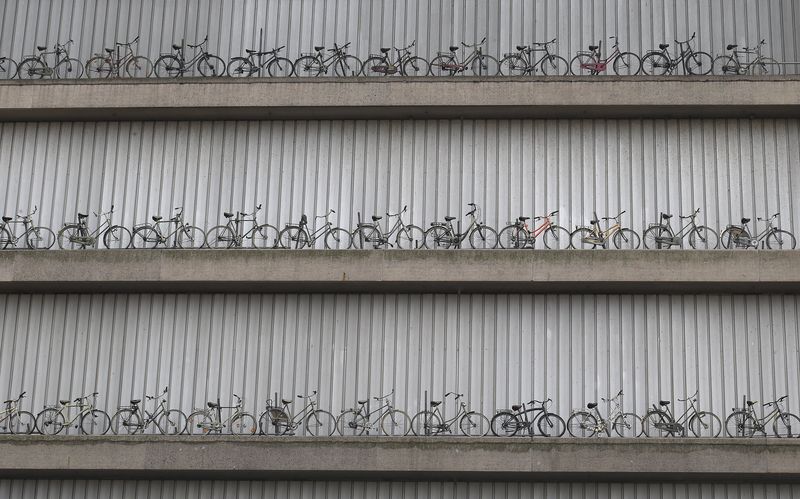By Julien Pretot
ST JEAN DE MAURIENNE, France (Reuters) - While Tour de France riders cover about 3,350 kilometres we 'suiveurs' (followers) drive about 7,000 to report on the race, moving from town to town, hotel to hotel, press buffet to press buffet –- after 10 Tours de France I can safely say the best buffets are found in Brittany.
Food is a recurring topic on the Tour. Coffee, too, as it gets more painful every day to wake up and head to the Village Depart where, thankfully, you find free coffee, and newspapers handed to you by the LCL hostesses who also appear on the maillot jaune podium after every stage.
Being on the Tour de France, you're cut off from the rest of the world but still have your usual needs so at the Village Depart you can find a doctor and even a barbershop.
Once you've got a nice cut, it's time to ‘work the buses' – talk to sports directors, riders and mechanics to get a feel of the race before the start of the stage.
Then you can climb on a press motorbike, where you sit behind a pilot who takes you as close as possible to the peloton. It's also a chance to have a closer look at the roadside.
Almost every time you get to see the devil: Didi Senft, aka El Diablo, who since 1993 has been showing off his red and black devil costume and trident on the Tour. You can also wave at the thousands of fans displaying their flags, messages and, quite often, buttocks.
Once you reach the finish there's the buffet, a welcome fuelling station before watching the end of the stage, taking notes while support team staff play ping-pong or just watch the race in long chairs sipping cold water or soda.
This year's Tour has been an extremely hot one and most of the time the press room is set up in sheds or under a tent, right in the sun.
When the stage is over, photographers, their shoulders crushed by the weight of cameras and lenses, flock into the room to edit and send their pictures, there is no time to breathe -- how do you breathe when it's 50 degrees Celsius? -- you're off to the finish line and the team buses to get the riders' reactions.
All of a sudden you feel much less like complaining as you see their masks of pain, dripping with a mixture of dust and sweat.
A few stories to write back in the press room and the chase for a restaurant begins. It would appear easy in France, yet most of the restaurants close well before 9pm when you're often at least a one-hour drive away.
Sometimes, you get lucky, like in the Pyrenees where in a tiny perched village we once had a wonderful dinner deep into the night.

It was about Jurancon and foie gras. The perfect fuel for another day on the road.